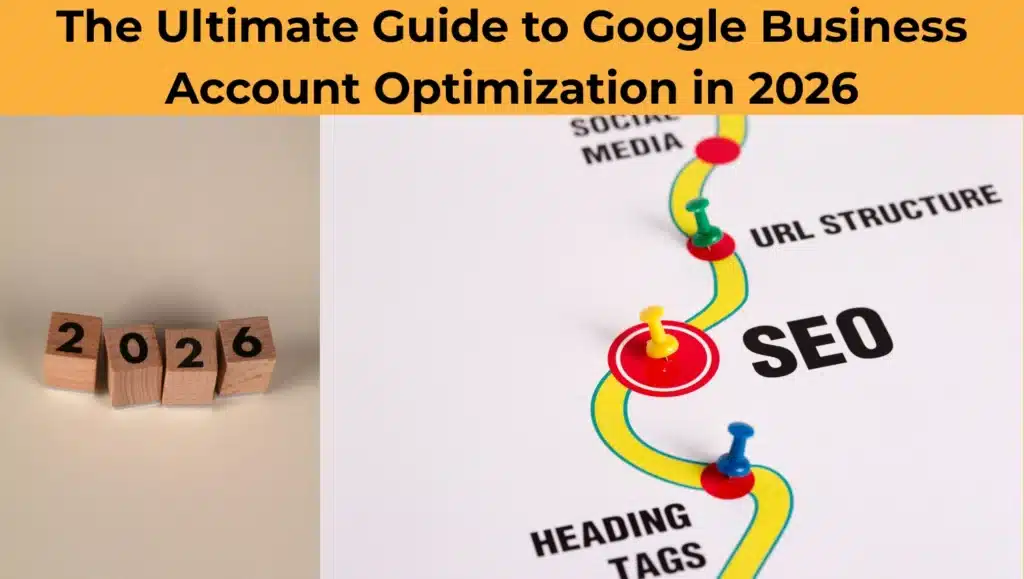Understanding Google’s Ranking Factors
Search engines evaluate countless factors when ranking websites. They consider search queries, content relevance, usability, authority, expertise, location, and more.
Modern SEO is all about optimizing for people — the better you cater to human users, the greater your chances of success. But to do that effectively, you need to understand how Google determines rankings and how to align your strategy accordingly.
What is SEO?
Search Engine Optimization (SEO) is the art and science of making your website more visible in organic search results on platforms like Google. In essence, SEO helps you get discovered by people searching for information, products, or services online.
To improve your SEO, you optimize various aspects of your website — from content and structure to technical elements like metadata and backlinks. A key part of SEO is understanding crawling, the process search engines use to discover and index web pages. Without proper indexing, even the best content may not rank well.
When someone types a query into Google, the search engine evaluates hundreds of factors to decide which websites to display and in what order. While there’s no “magic formula” to guarantee top rankings, there are tried-and-true best practices:
- Crafting compelling title tags and meta descriptions that attract clicks.
- Optimizing content for relevant keywords to match search intent.
- Keeping your website fast, mobile-friendly, and user-centric.
- Adapting to changes in Google’s algorithms, especially with emerging technologies like voice and image search.
- Ensuring your website is technically optimized for better indexing and ranking.
SEO is a long-term game, but its benefits — better visibility, increased traffic, and higher credibility — are worth the effort.
Why is Google SEO Important?
Google’s mission has always been clear: deliver the most relevant and high-quality results to users. SEO aligns with this goal by focusing on:
- Content quality: Providing well-researched, engaging, and informative content that directly addresses user queries.
- Usability: Making your website easy to navigate, mobile-responsive, and fast-loading.
- Accessibility: Ensuring your content is reachable by all users, including those using assistive technology and search engine crawlers.
Google’s algorithms constantly evolve to refine the search experience. For instance, factors like user intent and behavioral data now significantly influence rankings. If you search for “best pizza near me,” Google considers your location, past searches, and user reviews to serve up tailored results.
By understanding how Google evaluates content, you can create strategies that rank well and resonate with your audience, leading to increased engagement and conversions.
How Google’s Search Algorithm Works
Google’s search algorithm is a dynamic system that processes queries, retrieves information from its vast index (over 100 trillion web pages), and ranks pages based on relevance and quality.
The algorithm considers factors such as:
- Content relevance: Does the page provide the best answer to the searcher’s question?
- User experience: Is the website fast, mobile-friendly, and easy to navigate?
- Authority and trustworthiness: Does the page have high-quality backlinks from reputable sources?
Google also uses machine learning to better understand user intent, adjusting results accordingly. For example, if you search “quick dinner recipes,” Google prioritizes easy-to-make dishes with high ratings and step-by-step guides.
The algorithm’s complexity makes SEO challenging, but focusing on quality and user-centric practices can significantly improve your results over time.

8 Essential Elements of Google SEO
To succeed in SEO, you need to master these foundational elements:
- Technical Optimization
- Improve site speed and fix broken links.
- Use XML sitemaps to guide search engines.
- Ensure your site is indexed correctly and free of crawl errors.
- Implement structured data for rich search results.
- Quality Content Creation
- Write engaging, original content that answers user queries comprehensively.
- Update content regularly to maintain relevance.
- Use multimedia (images, videos) to enhance user experience.
- Optimize for featured snippets by structuring content clearly.
- Mobile Responsiveness
- Use responsive design for seamless viewing on all devices.
- Optimize text size, image placement, and tap targets for mobile users.
- Ensure mobile site speed is optimized.
- Page Speed Optimization
- Compress images and minimize code.
- Leverage browser caching and content delivery networks (CDNs) for faster load times.
- Eliminate render-blocking resources to enhance performance.
- Secure Website Protocols (HTTPS)
- Protect user data with HTTPS encryption.
- Google rewards secure websites with better rankings.
- User Experience Metrics
- Reduce bounce rates with intuitive navigation and clear CTAs.
- Improve readability with structured content and appropriate font sizes.
- Optimize for Core Web Vitals (Largest Contentful Paint, First Input Delay, Cumulative Layout Shift).
- Backlink Profile
- Build high-quality backlinks through collaborations and valuable content.
- Avoid spammy link-building practices that can result in penalties.
- Use internal linking to distribute page authority effectively.
- Site Structure
- Organize your site with a clear hierarchy and logical categories.
- Use internal links to guide users and improve crawlability.
These elements provide a strong foundation for improving your Google rankings and boosting long-term SEO performance. Need help optimizing your website? Contact SEO Sprouts today — we’ll help you grow your online presence and achieve your goals.
Advanced SEO Strategies
Taking your SEO to the next level involves understanding search intent and leveraging advanced tactics:
- Schema Markup: Add structured data to help Google better understand your content. For instance, include ratings or FAQs for rich snippets.
- Content Silos: Organize related content into clusters to boost relevance and authority.
- Influencer Collaborations: Partner with trusted voices in your industry to amplify reach and build credibility.
- Data-Driven Decisions: Use analytics tools like Google Search Console and GA4 to refine strategies based on user behavior.
- AI and Automation: Leverage AI tools to optimize keyword research, content creation, and user engagement.
Why Hire an SEO Company?
SEO requires time, expertise, and consistency. Hiring an SEO company can provide:
- Expertise: Professionals stay updated on algorithm changes and industry trends.
- Time Savings: Free yourself to focus on other business priorities.
- Results: Agencies can improve rankings, drive traffic, and increase conversions.
Additionally, SEO firms can enhance your other marketing efforts, from content creation to social media strategy, ensuring a comprehensive online precense.
Key Takeaways for Successful SEO
Google’s algorithms are always evolving, but the fundamentals remain the same: prioritize your users.





